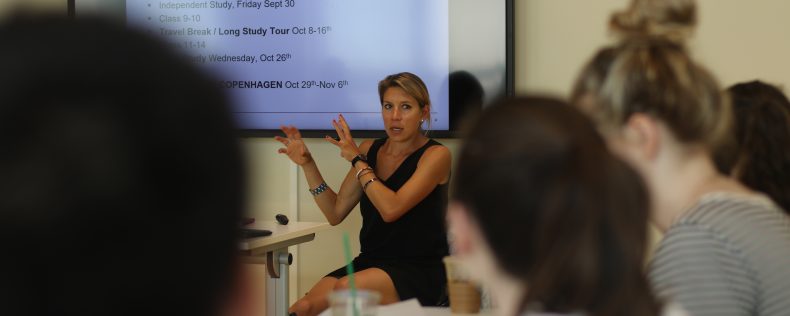What is an adult? This class addresses the transition from adolescence to adulthood. The psychological implications of the adolescent experience and further development into adulthood pertaining to identity, family, love and sex, cohabitation and marriage, career, and community (i.e. religion and politics) are considered and Scandinavian perspectives are explored. Sources of resilience and vulnerabilities are addressed as these pertain to diverse factors, including cultural variables and the role of social media.
Faculty
Monica Siqueiros Sanchez
PhD, Medical Science, Karolinska Institute, 2020. Postdoctoral scholar, Stanford School of Medicine, Stanford University, 2023. MSc, Neurodevelopmental Psychopathology, Durham University, 2014. Lic. Psychology, Universidad de Monterrey, 2010. Postdoctoral scholar, Stanford School of Medicine, Stanford University, 2021-2023. Postdoctoral scholar, Karolinska Institute, 2020. Part time faculty, DIS Study Abroad Scandinavia, 2019-2020. Behavioral therapist, Centro de Entrenamiento Psicologico Infantil, 2012-2015. School psychologist, Instituto Mar de Cortes, 2012-2013. With DIS since 2023

Joshua Juvrud
Ph.D. in Psychology (Uppsala University). As a research psychologist, his work has focused on the ways that novel techniques in research (eye-tracking, pupil dilation, virtual reality) can be used to assess how children and adults perceive and interpret people, emotions, and actions. Josh focuses this research in two fields. In developmental psychology at the Child and Babylab in Uppsala, he seeks to understand how children learn about their world and the social cognitive development of face perception and socialization processes such as gender, race, and ethnicity. In games research at the Games & Society Lab at the Department of Game Design in Visby, Gotland, his work examines the psychology of people, their actions, and emotions in game development, player engagement, learning, and immersion to understand better how different game players (with different personalities, traits, and experiences) interact with various game mechanisms and are, in turn, affected by game experiences. With DIS since 2020.

